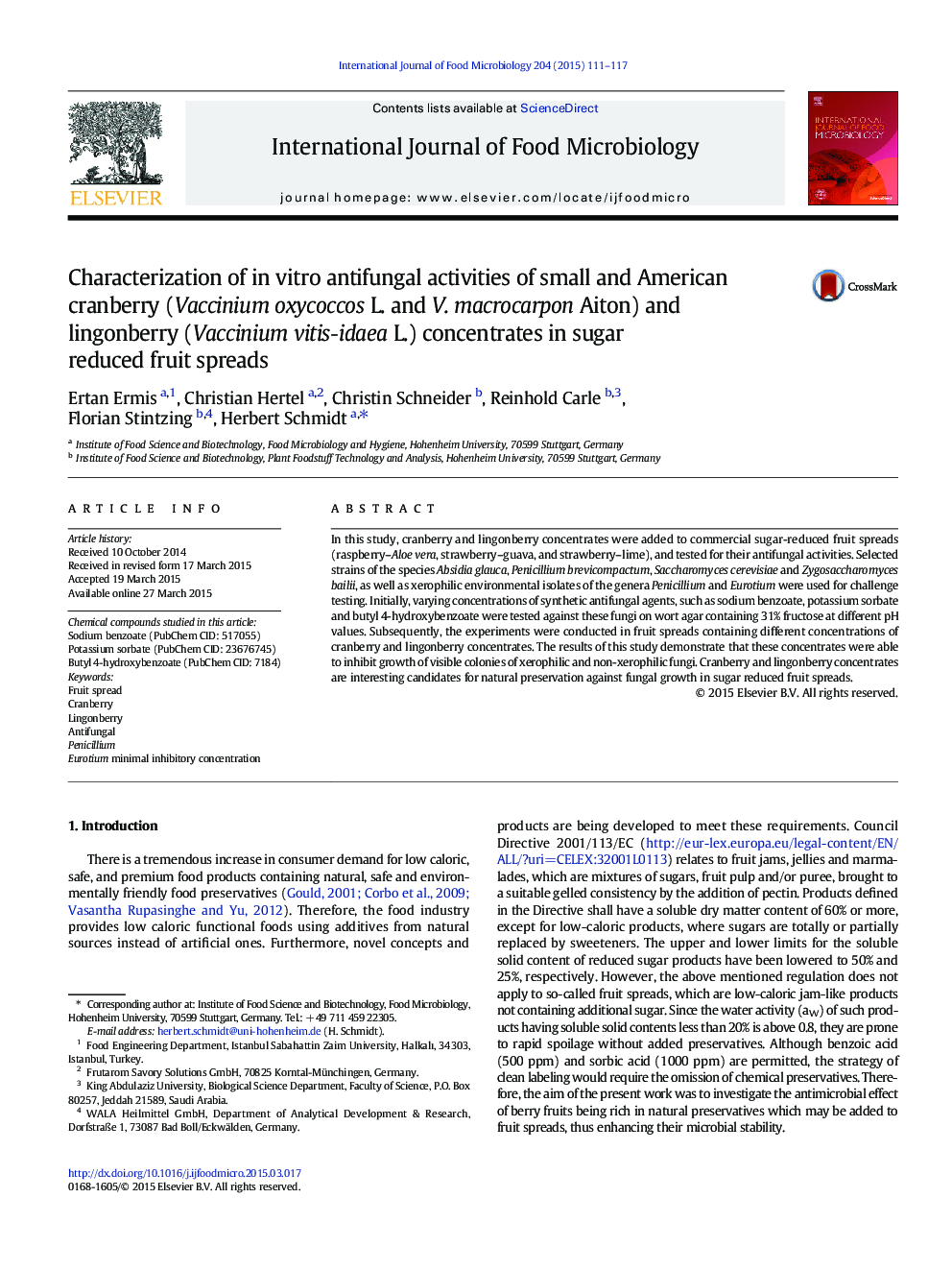| Article ID | Journal | Published Year | Pages | File Type |
|---|---|---|---|---|
| 6289947 | International Journal of Food Microbiology | 2015 | 7 Pages |
â¢Inhibition of particular fungi by chemical preservatives is demonstrated.â¢Cranberry and lingonberry concentrates inhibit fungal growth in sugar-reduced fruit spreads.â¢Berry concentrates may be used as preservatives in sugar reduced fruit spreads.
In this study, cranberry and lingonberry concentrates were added to commercial sugar-reduced fruit spreads (raspberry-Aloe vera, strawberry-guava, and strawberry-lime), and tested for their antifungal activities. Selected strains of the species Absidia glauca, Penicillium brevicompactum, Saccharomyces cerevisiae and Zygosaccharomyces bailii, as well as xerophilic environmental isolates of the genera Penicillium and Eurotium were used for challenge testing. Initially, varying concentrations of synthetic antifungal agents, such as sodium benzoate, potassium sorbate and butyl 4-hydroxybenzoate were tested against these fungi on wort agar containing 31% fructose at different pH values. Subsequently, the experiments were conducted in fruit spreads containing different concentrations of cranberry and lingonberry concentrates. The results of this study demonstrate that these concentrates were able to inhibit growth of visible colonies of xerophilic and non-xerophilic fungi. Cranberry and lingonberry concentrates are interesting candidates for natural preservation against fungal growth in sugar reduced fruit spreads.
